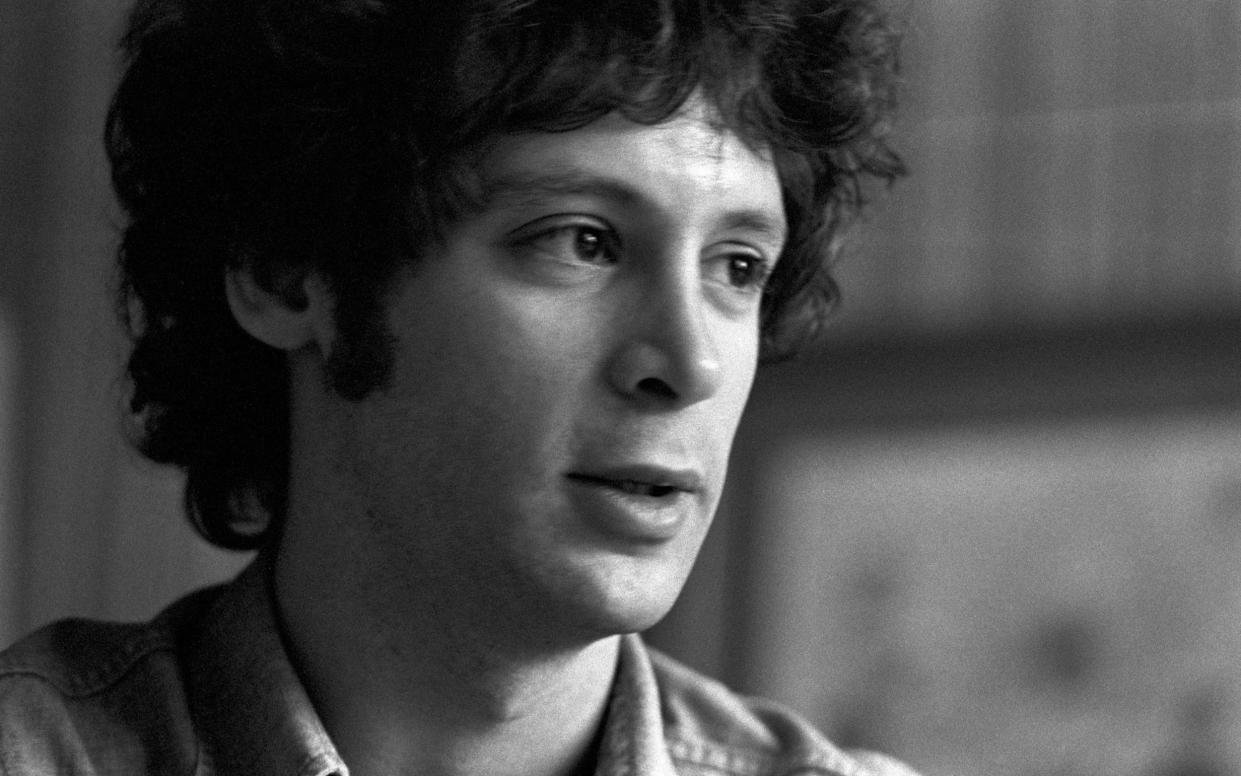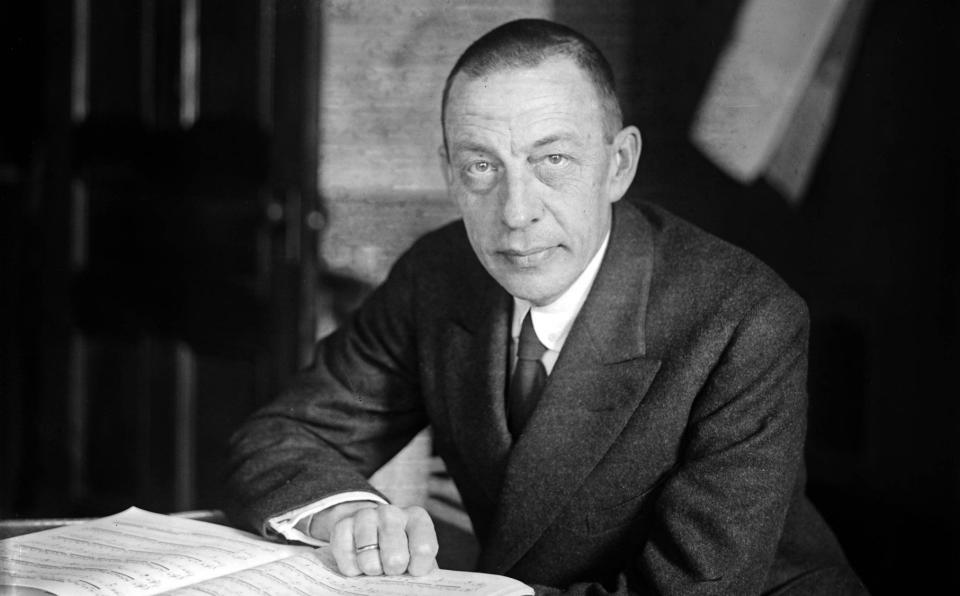Rachmaninov’s Piano Concerto crowned Britain’s favourite piece

Rachmaninov’s Piano Concerto No.2 has been voted Britain’s favourite piece of classical music after the death of the pop star who “stole” it for All By Myself.
The music topped the annual Classic FM Hall of Fame poll for the second year running but has received renewed attention following the death of singer-songwriter Eric Carmen last month.
Carmen sampled part of the melody from Russian-born Rachmaninov’s composition in his hit pop ballad All By Myself, recognisable to many as the track in a scene from Bridget Jones’s Diary when she is home alone with a bottle of Chardonnay.
The 1975 hit used Rachmaninov’s melody as the basis for the tune of Carmen’s verse. Although the Piano Concerto was in the public domain and copyright law no longer applied to it in the US, this was not the case elsewhere.
The Rachmaninov estate contacted Carmen after the album’s release – which was more than 30 years after the composer’s death – and together they agreed that he would get a songwriter credit and the estate would receive a 12 per cent share of the hit’s royalties.
Rachmaninov finished composing his classic concerto in 1901 and dedicated the piece to his doctor Nikolai Dahl, who had helped him through a difficult period of depression.

His music was followed on the Classic FM charts by English composer Ralph Vaughan Williams’ The Lark Ascending, which was dethroned by Rachmaninov in 2023.
The top 300 pieces of classical music were played on the classical music radio station across the Easter weekend and the new number 1 was revealed by breakfast presenter Dan Walker on Monday. He said: “The Classic FM Hall of Fame always gives us a window into our taste in music and 2024 is no different.
“Rachmaninov’s Piano Concerto No.2 is an enduring and powerful piece, and remains the nation’s favourite.”
Vaughan Williams’ Fantasia on a Theme by Thomas Tallis is at number three in the Hall of Fame. Music from films continues to soar in popularity, according to the poll, which saw more than 100,000 votes cast by the public.
Some 39 entries are film scores, with US composer John Williams taking the honour of the most popular living composer, with seven entries.

Williams’ score for Schindler’s List is at number ten on the list and his movie themes for Star Wars, Jurassic Park and Harry Potter also featured.
Hans Zimmer, who wrote the music for Gladiator (at number 43) and Interstellar (at 108) has six entries, while composer Debbie Wiseman has four entries, including her score to the film Wilde at number 198.
Welsh musician Sir Karl Jenkins, 80, is the most popular living British composer, with four entries, including Armed Man: A Mass for Peace at and Palladio at 64.
Mozart retains his crown as the nation’s most popular composer, with 13 entries in total, followed by Beethoven and Tchaikovsky with 11 each, and Bach with nine pieces.
Walker added: “The increasing popularity of movie music is one of the biggest changes we’ve seen in the past 28 years of the chart and this time we have an all-time record of 39 entries, led by the legendary John Williams.
“We should also congratulate Sir Karl Jenkins and Debbie Wiseman on being recognised as the most popular living British composers.”
Concerto is at the heart of national consciousness
By Ben Lawrence
Over the past 28 years, the Classic FM Hall of Fame has provided a reasonably robust indication of our classical music tastes. Looking at the statistics, we can tell that cinematic music has become ever more popular (John Williams is the number one contemporary composer), while Baroque music – although still featured heavily in the top 100 – has slipped down the rankings, with the highest entry for Mozart – the Clarinet Concerto – coming in at number 14.
But some things remain a reassuring constant, and it is no surprise that Rachmaninov’s 2nd Piano Concerto has taken the top slot again – for the second time in a row, and the 10th in the poll’s history. No surprise because the 2nd is one of those pieces – like Spring from Vivaldi’s Four Seasons or Nimrod from Elgar’s Enigma Variations which has seeped into our consciousness.
I love the 2nd Piano Concerto, but that is an unfashionable view. Too sentimental, too romantic, too hackneyed say those who would prescribe you an evening with Arnold Schoenberg. Indeed much of the composer’s work was seen as a hindrance to the progressive tendencies of musicians in the 1950s, despite the fact that his music demonstrated its own, less po-faced expression of modernity. Some pianists hate it, too. “The piano repertoire is vast and there is no time to waste on Rachmaninov,” said the great Alfred Brendel. I doubt Brendel was daunted by the technical challenges the 2nd presents, but it is notorious – both in the physical dexterity required with those huge hand leaps and in its emotional complexity –something that a young pianist with little life experience might struggle with.
Of course, when we talk about Rachmaninov’s 2nd Piano Concerto we are really only thinking about the 2nd movement – that emotional rollercoaster (or should that be a runaway train?) – used so beautifully in David Lean’s Brief Encounter to unbutton the repressed feelings of Trevor Howard and Celia Johnson on a suburban train platform. It was also appropriated by Eric Carmen (who died last month) for the 1970s tearjerker, All By Myself, an anthem for singlehood and the go-to track for Bridget Jones when she is home alone with a bottle of Chardonnay.
But the musically curious should look beyond the 2nd movement – the way in which the 1st movement builds from a pious solemnity to one of foreboding, for example, and then the 3rd where everything seems to be spiralling out of control until it reaches a thrilling, thunderous, triumphant conclusion.
The Telegraph’s classical music critic Ivan Hewett summed up Rachmaninov’s gifts neatly: “He goes straight for the emotional jugular, through a melodic gift which is second to none, a tumultuous pianistic virtuosity and a darkly rich harmonic palette,” he wrote when defending the composer against the naysayers ahead of a series of concerts at the Proms last summer.
And nowhere are these words more true than in the 2nd Piano Concerto, a consummation of Rachmaninov’s talents, and a consistent presence in our cultural lives.
